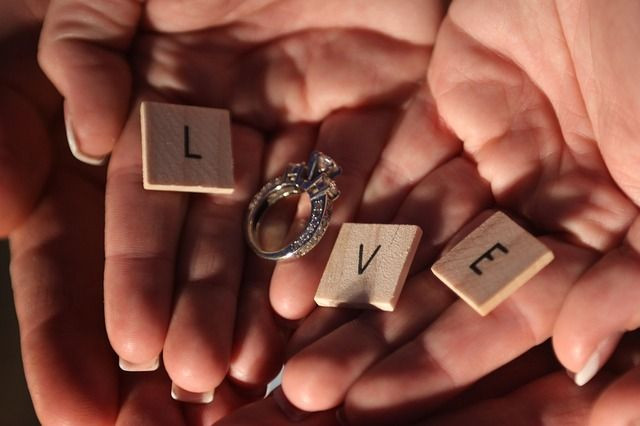Should You Put A Ring On It? Unmarried Couples Living Together Have Better Emotional Health

It's not unheard of for someone to say that couples who shack up before marriage are doomed for emotional distress and divorce. However, marriage may not be necessary to reap the benefits of living together. A recent study, published in the Journal of Family Psychology, found young couples get the same emotional benefits from living together as would from getting married, especially the women in these relationships.
In the U.S., cohabitation has recently become a regular part of family life. Census Data from 2012 shows 7.8 million couples are living together without being married, compared to 2.9 million in 1996. Moreover, two-thirds of couples married in 2012 cohabitated for more than two years before they walked down the aisle, according to the Council on Contemporary Families.
People may be putting off marriage because they can’t afford it, or because it’s financially risky. Cohabitation is also seen as a way of test-driving a relationship to see if the marriage will work out. However, is there a difference between emotional wellbeing when it comes to living together versus getting married?
Researchers at the University of Ohio collected data from the National Longitudinal Survey of Youth 1997. This study included 8,700 people who were born between 1980 and 1984, and who were interviewed every other year from 2000 to 2010. The NLSY97 is conducted by Ohio State's Center for Human Resource Research for the U.S. Bureau of Labor Statistics.
During each survey, participants were asked about their relationship status, along with five questions assessing their levels of emotional distress. On a scale of scale of 1 (all of the time) to 4 (none of the time), they reported how often in the past month they felt “downhearted and blue,” among other symptoms.
The findings revealed there were several gender differences when it came emotional health from moving in together versus getting married. When it came to first unions (first relationships), women got the same emotional benefit from moving in together as they did from going directly into marriage. "There's no additional boost from getting married," said Sara Mernitz, co-author of the study, and a doctoral student in human sciences at The Ohio State University, in the news release.
Meanwhile, men entering a first union experienced a decrease in emotional distress only if they went directly into marriage. There was no change in distress for men who cohabited with a female partner. The researchers reasoned this was because men are more likely than women to report cohabitations as a way to test the relationship.
There were no reported gender differences when it came to emotional health changes among men or women entering their second union. In other words, both groups experienced a drop in emotional distress when they moved from a first relationship into cohabitation or marriage with a second partner. "The young people in our study may be selecting better partners for themselves the second time around, which is why they are seeing a drop in emotional distress," said Claire Kamp Dush, co-author of the study and associate professor of human sciences at Ohio State, in the news release.
Surprisingly, the researchers found those who gave birth, or whose partners gave birth, experienced a significant decrease in emotional distress compared to those who didn't have a child. This is alarming, considering having a baby has been associated with increased stress. The researchers warned they only looked at emotional distress, meaning the stress of raising a baby could have manifested itself in other ways for these couples. Moreover, marriage may provide benefits that weren't observed in the study, such as stability.
Couples who engage in cohabitation do not have the same formal constraints or responsibilities as those who are married. This can lead to uncertainty in regards to the stability and longevity of the relationship. In this sense, cohabitation may be a con for couples who seek to confirm stability.
Despite the limitations, Kamp Dush said: "It's not commonly known that couples can get emotional benefits from moving in together without being married. That's something we should be talking about.”
Sources: Mernitz SE and Kamp Dush C. Emotional Health Across the Transition to First and Second Unions Among Emerging Adults. Journal of Family Psychology . 2015.



























